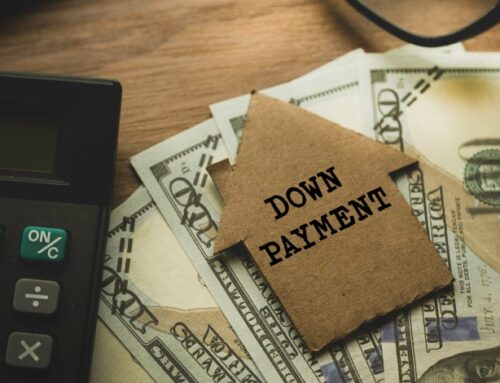More than six in ten Americans who graduate from public and private nonprofit colleges leave with student loan debt. And the average graduate exits with $28,950 of student loan debt, according to a 2019 study conducted by The Institute for College Access & Success. Moreover, recent college graduates, on average, earn $50,000 a year, according to a recent National Association of Colleges and Employers (NACE) salary survey. With the cost of living increasing, wages remaining stagnant and crippling student loan debt, recent graduates struggle to pay off their student loans while saving money to plan for their future. Although there is no one-size-fits-all solution, this article will provide actionable tips to tackle your student loan debt while setting aside money.
Understanding Your Financial Situation
Before any payment is made to your student loans, it’s essential to plan around your financial situation. One of the nice things about student loans is that most lenders offer a six-month grace period between the time you graduate and the time your first payment is due. It’s imperative to use this time to establish a monthly budget and start saving money.
Creating a Monthly Budget
Establishing a monthly budget is one of the best ways to plan out where every dollar you earned and spend will go. There are a few ways to track a monthly budget. The old-fashioned pen and paper works, but nowadays, most banks offer financial budgeting tools through their online system.
Whichever method you choose, it’s crucial to track your income versus all expenses from the month. Expenses can be broken into two major categories-essential and non-essential. Essential should list things like food, utilities, shelter and transportation. In contrast, non-essential should include things like personal, lifestyle and debt. Student loans would fall into the non-essential category, but through proper budgeting, you should be able to pay off that debt relatively quickly.
Take Advantage of the Grace Period by Saving Money
Use the six-month grace period to your advantage. Financial advisors generally suggest putting 20% of your monthly income into a savings account. This can either be toward a savings plan, emergency fund, retirement or investments. Another general rule when saving money is to save three to six months of living expenses, including your monthly housing payments, bill payments, utilities, and other recurring monthly bills.
Determine What Loans to Payoff First
There are various types of student loans such as direct subsidized federal loans, direct unsubsidized federal loans, direct Parent PLUS loans and private student loans. Each of these comes with stipulations, interest rates and repayment plans. Take some time to understand what loans you have to pay back and prepare a game plan. Although, if you have private student loans, it is recommended to tackle those first due to their high-interest rates and a few repayment options. However, if you just have federal student loans, here are a couple of factors to consider:
- Interest rates
- Payment options
Pay off High-Interest Loans First
Two of the most common debt payoff strategies are the debt snowball and debt avalanche. Each strategy provides benefits, but we’ll discuss the avalanche method for paying off high-interest loans for this situation. The debt avalanche method is paying off your debts in order of highest interest rates to lowest. Paying off your high-interest loans will allow you to save more money later on down the road. For example, paying off a $10,000 loan at 7% interest in five years instead of ten years will save you $2,050.
Consider Payment Options
This difference in payment options depends on if your loans are private or federal. Private student loans offer fewer repayment options than federal loans do. Federal student loans offer some flexibility, but if you do not select a repayment plan, you will be placed on the standard plan, which will generally take you 10 years to pay off. However, if you consolidate your loans, it can take around 10 to 30 years to pay off. You can typically change the repayment plan at any time to suit your financial needs and goals.
Consider Refinancing Your Student Loans
If you have multiple student loans with different interest rates, refinancing those loans may be the best option for you to save money. Refinancing will combine your private and federal loans into one private loan with new terms and one low-interest rate. If you qualify, you can save money on interest and pay more of the principal.
Pay More Than The Minimum Payment
This may be easier for some people, but paying more than the minimum payment will ultimately save you more money in the long run. If you are paying the minimum amount, the chances are high that you are barely paying the principal, and most of that payment will be applied to the interest. Making larger payments will tackle the overall principal at a quicker rate.
Use Company Benefits To Your Advantage
One of the best ways to pay off student loan debt while saving is to take advantage of company benefits. Many companies offer their full-time employees savings and retirement plans like a 401(k). Often, the company will offer a matching contribution. For example, if your employer offers a 5% match and put 5% of your salary into a 401(k), that company match is essentially “free” money you don’t want to miss out on while paying off student loans.
Stay Diligent And Your Student Loans Will Be Paid Off In No Time
Exiting college with thousands of dollars of debt may seem daunting at first, but if you stay diligent, you’ll have your student loans paid off faster than you may think. Planning is essential. Make sure you understand your financial situation, the terms of your loan and create a monthly budget. Always make payments on time to avoid late fees. Also, if necessary, consider refinancing your loans. Arizona Central Credit Union offers a range of financial services. Whether you have questions about student loans, banking, home loans or any other financial-related questions—our financial experts can help. Contact us if you have questions or would like to open a bank account.




